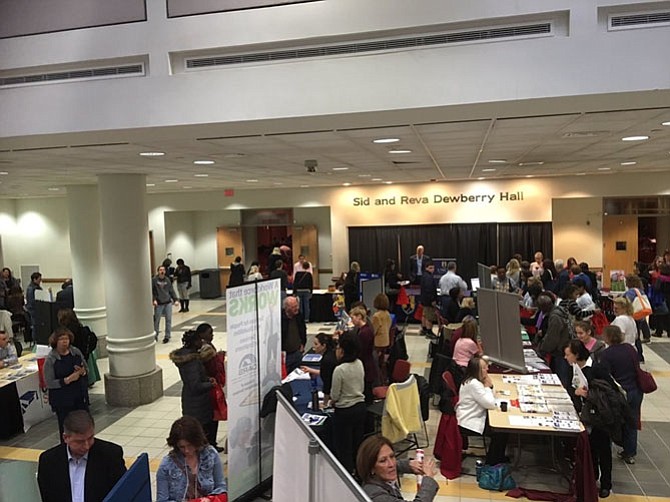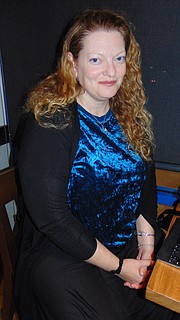Future Quest, a free college and career conference that attracts thousands of local middle and high school students with disabilities, will be held at George Mason University on Saturday, Dec. 2 from 8 a.m. to 3 p.m. It features more than 40 workshops and exhibits related to successful life after high school and is organized by GMU and the Northern Virginia Transition Coalition.
Future Quest is a resource fair and networking event held every two years where people can interact with representatives from different agencies and colleges from all over the country, as well as organizations that assist young adults. The organizer, the Northern Virginia Transition Coalition, helps youth with disabilities successfully transition from high school to the next stage of their lives.
The event is spearheaded by Deborah Hammer, 47, of Alexandria, an autism specialist with Arlington Public Schools, along with co-chairman Leanne Kidwell. "The goal is to help as many students and families and professionals as we can to understand the opportunities and resources that are available. We want to provide speakers who can educate our target population on a variety of topics related to transition, including funding for college, what kind of supports are available, and careers that don't require college because not all of our students will go to college," said Hammer.
Future Quest specifically targets students with any disability. They include the blind or visually impaired, deaf or hard of hearing, learning disabilities, orthopedic disabilities, intellectual disabilities, traumatic brain injuries, or other health impairments and emotional disabilities. Students who attend come from all over Northern Virginia, Maryland, the District, and West Virginia.
"We want all of our students with disabilities to know there are many possibilities for them as they transition into adulthood and we want them to take advantage of the opportunities that are available," said Hammer. "Our goal is to help connect our students to those resources."
THIS YEAR’S KEYNOTE SPEAKER is Joshua Anton, a self-advocate who has an ADHD learning disability. He has a business degree from the University of Virginia and developed his own successful app company.
Hammer said they want students and families to start planning as early as possible for their transition into adulthood. "We have young adults who have already graduated high school who attend as well," she said.
The event will feature different universities that have programs for students with disabilities that might be a bridge between high school and college that provide additional levels of support, said Hammer.
There will be 44 concurrent sessions in the resource fair, about eight at a time, and people can choose what interests them specifically. There are different strands related to topics to make the event meaningful for all individuals, such as autism or self-advocacy. This includes strands specifically for youth, like living with a roommate, or for parents, like financing college.
"We will have agencies and organizations that will assist students with everything from transportation to assistive technology to financial aide to leisure activities like therapeutic recreation. So there will be a wide variety of venders," she said.
Some of the confirmed sessions include the following: Successful Transition from High School to College for Students with Learning Disabilities; Finding the Career that Matches Me; Organize Your Life with Google; Adulting for Life: Five Tips for Success; and Estate Planning and Guardianship for Individuals with Disabilities.
In addition, there will be a Book Fair inside the Johnson Center Book Store with a special display related to transition, careers and college. Some of the accommodations if they are required include braille programs, interpreters or listening devices for the deaf, and a calming room for sensory breaks.
"Parents may want to go because they may be anxious about what happens when their children graduate from high school," said Hammer. "Students will want to attend so that they can learn what options are available for college, what it's really like to be an adult with a disability, to be able to talk to other youth with disabilities, and feel empowered to make decisions for themselves."
Future Quest will be held Saturday, Dec. 2, from 8 a.m. to 3 p.m., at GMU's Johnson Center, 4400 University Drive, Fairfax. It is free and open to any student with a disability as well as their parents, teachers and other professionals. There is free parking in Lot K, or in the Mason Pond Parking Garage for $8. Visit ww.futurequestgmu.org to register. Hammer urges people to pre-register early. Email futurequestnova@gmail.com.


